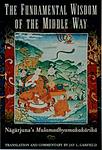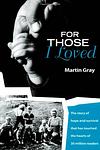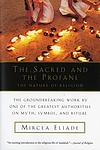The Greatest Roman, Multiple "Nonfiction" Books of All Time
Click to learn how this list is calculated.
This list represents a comprehensive and trusted collection of the greatest books. Developed through a specialized algorithm, it brings together 300 'best of' book lists to form a definitive guide to the world's most acclaimed books. For those interested in how these books are chosen, additional details can be found on the rankings page.
Genres
Countries
Date Range
Reading Statistics
Click the button below to see how many of these books you've read!
Download
If you're interested in downloading this list as a CSV file for use in a spreadsheet application, you can easily do so by clicking the button below. Please note that to ensure a manageable file size and faster download, the CSV will include details for only the first 500 books.
Download-
1. Confessions by Augustine
"Confessions" is an autobiographical work by a renowned theologian, in which he outlines his sinful youth and his conversion to Christianity. It is written in the form of a long, introspective prayer directed to God, exploring the author's spiritual journey and deep philosophical ponderings. The book is renowned for its eloquent and deeply personal exploration of faith, making it a cornerstone of Christian theology and Western literature.
-
2. Meditations by Marcus Aurelius
"Meditations" is a collection of personal writings by a Roman Emperor, providing deep insights into Stoic philosophy. The book is a series of introspective reflections on how to deal with life's challenges with wisdom, integrity, self-discipline, and benevolent affection for all mankind. It serves as a manual for self-improvement and moral guidance, emphasizing the importance of accepting things outside of one's control and maintaining a tranquil mind amidst adversity.
-
3. De Rerum Natura by Lucretius
"De Rerum Natura" is a long didactic poem written in the first century BC, which explores Epicurean philosophy and the nature of the universe. The text delves into topics such as the nature of the gods, the atomic structure of the universe, human sensation and thought, and the fear of death. The author argues that understanding the physical world can free humans from superstition and fear, leading to peace of mind and true happiness.
-
4. Annals by Cornelius Tacitus
"Annals" is a historical work that provides a comprehensive account of the Roman Empire from the reign of Tiberius in 14 AD to the death of Nero in 68 AD. The author, a senator and historian of the Roman Empire, explores the inner workings of Roman politics, military campaigns, and social culture during this period. The book offers an in-depth look at the political machinations, power struggles, and the moral decay of the Roman elite, providing a critical perspective on the Roman emperors and their rule.
-
5. Lives of the Caesars by Suetonius
"Lives of the Caesars" is a historical narrative that provides a detailed account of the personal and public lives of the first twelve Roman emperors, from Julius Caesar to Domitian. The author presents a vivid depiction of their character, behavior, appearance, and private lives, as well as their political actions, military exploits, and administrative policies. The book is a valuable source of information about the Roman Empire's early days, offering a unique perspective on the power, corruption, and extravagance of the Roman elite.
-
6. Tractatus Theologico Politicus by Baruch de Spinoza
"Tractatus Theologico-Politicus" is a seminal work that explores the relationship between religion, politics, and philosophy. The author argues for the separation of theology and philosophy, asserting that the purpose of the state is to promote peace and security through rational governance, free from religious influence. He critiques the role of organized religion in politics and defends the freedom of thought and expression, advocating for a secular, democratic political order. The work also delves into biblical criticism, challenging traditional interpretations and suggesting that the Bible should be analyzed through a historical and contextual lens.
-
7. The City of God by Augustine
The book is a philosophical and theological masterpiece, written as a defense of Christianity after the sack of Rome in 410 AD. The author contrasts the earthly city, characterized by pride and love of self to the point of contempt for God, with the heavenly city, characterized by love of God to the point of contempt for self. He argues that though the earthly city may seem dominant in the present age, the heavenly city will ultimately triumph. The book is a profound exploration of history, philosophy, religion, and the human condition.
-
8. Letters from a Stoic by Seneca
"Letters from a Stoic" is a collection of moral epistles written by a renowned Stoic philosopher. The letters provide practical guidance on everything from dealing with adversity and the pursuit of wisdom to the folly of consumerism and the nature of friendship. The author's stoic philosophy encourages peace of mind through understanding and accepting the natural order of the universe, and his letters offer timeless wisdom and insights that are still relevant today.
-
9. Histories by Cornelius Tacitus
"Histories" is a comprehensive account of the Roman Empire from 69-96 AD, a period marked by significant political turmoil. It provides an in-depth look at the reigns of four emperors: Galba, Otho, Vitellius, and Vespasian, along with the social and political upheavals of the time. The narrative also covers the Jewish rebellion and the burning of the Jerusalem Temple, offering a rich historical context of the period. Despite some gaps in the record, it remains a crucial primary source for understanding this era of Roman history.
-
10. Germania by Cornelius Tacitus
"Germania" is a historical and ethnographic work that provides a detailed description of the lands, customs, and tribes of the Germanic people in the first century AD. The author, a Roman historian and senator, offers a comprehensive account of the geography, anthropology, social institutions, and military practices of the Germanic tribes, often comparing their culture and values to those of the Romans. The work is considered a valuable source of information about the ancient Germanic tribes, despite its possible biases and inaccuracies.
-
11. Titi Livi Ab urbe condita libri by Livy
This historical work offers a comprehensive narrative of the history of Rome, from its mythical origins to the reign of the Roman Emperor Augustus. The author chronicles the major political, military, and social events of the Roman Republic, including the founding of the city, the establishment of the Republic, the Punic Wars, and the rise of Julius Caesar. The book is a significant source of information about the early history of Rome and is often considered one of the most important works of Roman history.
-
12. Poetry by Quintus Lutatius Catulus
This book is a collection of ancient Roman poetry by a renowned statesman and poet. The poems reflect the author's experiences, thoughts, and feelings about life, love, politics, and society during the Roman Republic era. The author's eloquent and vivid writing style, combined with his astute observations and insights, make this book a valuable resource for understanding Roman culture and history.
-
13. Memories And Commentaries by Igor Stravinsky
"Memories and Commentaries" is a reflective work that offers a window into the mind of one of the 20th century's most influential composers. Through a series of personal recollections and insights, the book delves into the author's artistic journey, his relationships with other prominent figures in the world of music and art, and his philosophical musings on the nature of creativity. The narrative weaves together anecdotes from the composer's life, discussions on his own compositions and musical techniques, as well as his opinions on the works of his contemporaries, providing readers with an intimate portrait of a man whose legacy continues to shape the landscape of classical music.
-
14. Catiline Orations by Marcus Tullius Cicero
"Catiline Orations" is a series of speeches given by a renowned Roman statesman, which were aimed at exposing and condemning the conspiracy led by Lucius Sergius Catilina. The speeches, delivered in the Roman Senate, are a masterful display of oratory skills and political acumen, as the statesman successfully manages to turn the Senate against Catiline, ultimately leading to his downfall. The book offers an in-depth study of these speeches, providing valuable insights into Roman politics, rhetoric, and the art of persuasion.
-
15. Natural History by Pliny (the Elder)
"Natural History" is an extensive work of literature that provides a comprehensive look at the knowledge of the natural world during the Roman era. The book is divided into 37 volumes, each focusing on different aspects such as geography, anthropology, zoology, botany, and mineralogy. The author's curiosity and fascination with the world are evident in his detailed observations and descriptions. The book also includes discussions on art, sculpture, and various other topics, providing a rich and detailed snapshot of the Roman understanding of the world.
-
16. Six Studies In Communism by Arthur Koestler, Richard Crossman
This book is a compilation of six essays that delve into the ideological and practical facets of communism. Each study examines different aspects of communist theory and practice, from its origins and evolution to its implementation in various countries. The authors critically analyze the successes and failures of communist systems, exploring the impact on societies that have adopted these principles. The essays also consider the psychological and sociological effects of living under communist regimes, providing a multifaceted perspective on one of the most influential political ideologies of the 20th century.
-
17. The Consolation of Philosophy by Boethius
"The Consolation of Philosophy" is a philosophical work written in the 6th century, where the author, imprisoned and awaiting execution, engages in a series of dialogues with Lady Philosophy about the nature of life and human happiness. The author grapples with the harsh realities of his own life, including his fall from favor, his unjust imprisonment, and impending execution. Through these dialogues, the author learns to understand life from a philosophical and spiritual perspective, finding consolation and peace amidst his dire circumstances. The work is a profound meditation on fate, free will, time, and eternity.
-
18. Summulae De Dialectica by John Buridan, Gyula Klima
"Summulae De Dialectica" is a comprehensive exploration of medieval logic, focusing on the intricacies of philosophical reasoning and argumentation. The text delves into various forms of logical analysis and syllogistic structures, providing a detailed examination of the principles and applications of dialectical reasoning. It serves as a critical resource for understanding the evolution of logical methodologies during the medieval period, reflecting the intellectual rigor and analytical depth characteristic of scholastic philosophy. The work is pivotal for scholars interested in the history of logic, philosophy, and medieval studies.
-
19. The Fundamental Wisdom Of The Middle Way by Nagarjuna, Jay L. Garfield
"The Fundamental Wisdom of the Middle Way" is a philosophical text that explores the Buddhist concept of emptiness and the nature of reality. The work is a verse-by-verse commentary on the challenges and questions pertaining to conventional existence and ultimate truth, aiming to resolve the dichotomies and contradictions inherent in ordinary experience. Through rigorous argumentation and logical analysis, the text deconstructs the assumptions of inherent existence in phenomena, proposing instead that all things exist interdependently. This exposition not only deepens the understanding of Buddhist philosophy but also offers insights into the nature of suffering and liberation.
-
20. On The Ends Of Good And Evil by Marcus Tullius Cicero
"On the Ends of Good and Evil" is a philosophical work that explores the ethical theories of Hellenistic schools, including Stoicism, Epicureanism, and the Peripatetic tradition. Through a series of dialogues, the text delves into the nature of happiness and the ultimate end of human action, examining what constitutes the highest good. The author critiques and compares the doctrines of these schools, ultimately defending the Stoic view that virtue is the sole basis of happiness and the ultimate goal in life, while also acknowledging valuable insights from other philosophical traditions.
-
21. De Anima by Aristotle
"De Anima" is a foundational philosophical treatise that explores the concept of the soul and its relation to the body. The work delves into the nature of life itself, categorizing different kinds of souls possessed by different kinds of living things, such as plants, animals, and humans. It discusses the faculties of the soul, including the nutritive, perceptive, and intellectual aspects, and investigates their functions and interactions. The treatise also examines issues of perception, cognition, and memory, arguing that the soul is the principle of life and the source of all vital functions, ultimately aiming to define the essence of life and the basis of all living activities.
-
22. The World Of Economics by John Eatwell, Murray Milgate, Peter Newman
"The World of Economics" is a comprehensive reference book that serves as an essential guide to the field of economics, offering a wide-ranging compilation of entries penned by an international group of economists and scholars. The work covers key concepts, theories, and figures that have shaped economic thought, providing readers with a deep understanding of both historical and contemporary economic issues. Its encyclopedic format presents a wealth of information on various topics, including economic policy, market structures, and foundational principles, making it a valuable resource for students, professionals, and anyone interested in the complexities of how economies function and evolve.
-
23. For Those I Loved by Martin Gray
The book is a harrowing memoir of survival and resilience, chronicling the author's experiences during the Holocaust. As a young Jewish boy in Poland, he witnesses the brutal murder of his family by the Nazis and endures the horrors of the Warsaw Ghetto and Treblinka extermination camp. Against all odds, he manages to escape and join the resistance, fighting for freedom and justice. After the war, he rebuilds his life, only to face tragedy again when his wife and children are killed in a fire. The narrative is a testament to the human spirit's capacity to endure and find meaning in the face of unimaginable suffering.
-
24. The Sacred And The Profane by Mircea Eliade
"The Sacred and the Profane" explores the concept of human experience of the sacred, contrasting it with the profane world of everyday life. The author delves into various religious practices and beliefs to illustrate how traditional societies have structured their worldviews and environments through religious symbolism and myth. By examining sacred spaces, time, and nature, the book reveals how the sacred elevates and enriches human life, providing a sense of meaning and orientation. The analysis highlights the universal human tendency to seek connections with a transcendent reality, thereby separating and distinguishing the sacred from the ordinary.
-
25. Episodes Of The Cuban Revolutionary War by Che Guevara
The book is a detailed account of the Cuban Revolutionary War, written by one of its key leaders. It provides an insightful narrative of the guerrilla warfare tactics and major battles that took place from 1956 to 1958, leading to the overthrow of the Batista regime. Through a series of essays and firsthand accounts, the author, a prominent revolutionary figure, shares his experiences, strategic thoughts, and the ideological convictions that drove the rebels' quest for Cuba's liberation. The work not only chronicles military engagements but also reflects on the social and political implications of the revolution.
Reading Statistics
Click the button below to see how many of these books you've read!
Download
If you're interested in downloading this list as a CSV file for use in a spreadsheet application, you can easily do so by clicking the button below. Please note that to ensure a manageable file size and faster download, the CSV will include details for only the first 500 books.
Download




















